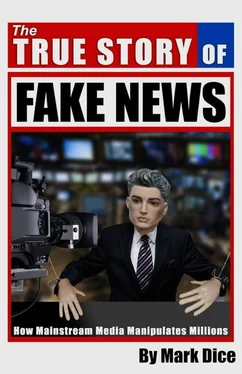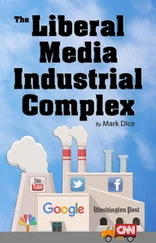Shortly after Operation Mockingbird was exposed George Bush senior, then director of the CIA, issued a statement saying that, “The CIA will not enter into any paid or contractual relationship with any full-time or part-time news correspondent accredited by any United States news service, newspaper, periodical, radio or television network or station [anymore].” 264
The CIA also claimed, “As soon as feasible, the Agency will bring existing relationships with individuals in these groups into conformity with this new policy. CIA recognizes that members of these groups (U.S. media and religious personnel) may wish to provide information to the CIA on matters of foreign intelligence of interest to the U.S. Government. The CIA will continue to welcome information volunteered by such individuals.” 265
The Church Committee report noted that, “Of the approximately 50 U.S. journalists or personnel of U.S. media organizations who were employed by the CIA or maintained some other covert relationship with the CIA at the time of the announcement, fewer than one-half will be terminated under the new CIA guidelines.” 266
It goes on to say, “About half of the some 50 CIA relationships with the U.S. media were paid relationships, ranging from salaried operatives working under journalistic cover, to U.S. journalists serving as ‘independent contractors’ for the CIA and being paid regularly for their services, to those who receive only occasional gifts and reimbursements from the CIA… More than a dozen United States news organizations and commercial publishing houses formerly provided cover for CIA agents abroad. A few of these organizations were unaware that they provided this cover.” 267
The report also admits, “While the CIA did not provide the names of its media agents or the names of the media organizations with which they are connected, the Committee reviewed summaries of their relationships and work with the CIA.” 268
During the Church Hearings, the CIA claimed they never tried to engage in any “clandestine use of staff employees of U.S. publications which have a substantial impact or influence on public opinion,” 269but this is an obvious lie and the report whitewashed such actions as “fallout” which they described as unintended and incidental ‘side effects’ of their propaganda, which they admitted was spread through the U.S. media, not just the foreign press.
They said this “fallout” in the United States was, “inevitable and consequently permissible” and that “there is no way to shield the American public from such ‘fallout.’” 270As a former senior official of the Agency said in his testimony, “If you plant an article in some paper overseas, and it is a hard-hitting article, or a revelation, there is no way of guaranteeing that it is not going to be picked up and published by the Associated Press in this country.” 271
The report also admitted, “The domestic fallout of covert propaganda comes from many sources; books intended primarily for an English-speaking foreign audience, press placements that are picked up by international wire services, press services controlled by the CIA, and direct funding of foreign institutions that attempt to propagandize the United States public and Congress.” 272
Even if they aren’t officially paying reporters anymore (which is most likely a complete lie), the fact is that they openly invited reporters and executives to work with the CIA “voluntarily,” and the report admits that this relationship would be of a great benefit to the careers of journalists who take them up on that offer. 273The report also admitted that CIA propaganda “contaminating” U.S. media (‘fall-out’ as they called it), “occurs in virtually any instance of propaganda use,” and that “it is truly impossible to insulate the United States from propaganda fallout.” 274
It goes on to say, “The fallout problem is probably most serious when the U.S. public is dependent on the ‘polluted’ media channel for its information on a particular subject… Another situation in which the effects of ‘fallout’ in the United States may be significant is that in which specialized audiences in the United States◦— area study specialists, for example◦— may unknowingly rely heavily on materials produced by, or subsidized by, the CIA.” 275
They even admitted that, “the propaganda effort had an impact on the American public and congressional opinion.” 276One example was the CIA paying $170,000 to create pro-Vietnam War propaganda magazines in the 1970s which were then distributed to American readers including the offices of all United States Congressmen and Senators.” 277The CIA funded magazine (which wasn’t named) even sponsored American Congressmen to travel to Vietnam. The Church report admits that, “Through this institution the CIA engaged in propagandizing the American public, including its Congress, on the controversial issue of U.S. involvement in Vietnam.” 278
The report even noted, “The CIA recognizes that it risks seriously misleading U.S. policymakers,” 279and that their propaganda, “might influence the thinking of senior U.S. officials or affect U.S. intelligence estimates,” and “No mechanism exists to protect the U.S. public and the Congress from fallout from black propaganda or any other propaganda.” 280
The CIA also secretly ran various newspapers in foreign countries to take their propaganda to a whole new level and provide cover for CIA operatives. One paper was The Daily American in Rome which was used by the Agency to help influence Italy’s electorate. 281Operation Mockingbird also funded the publishing of various books, although they refused to mention which ones.
Former CBS president Sig Mickelson was later asked if he thought despite these revelations the CIA was still covertly working with reporters, and he answered, “Yeah, I would think probably, for a reporter it would probably continue today, but because of all the revelations of the period of the 1970s, it seems to me a reporter has to be a lot more circumspect when doing it now or he runs the risk of at least being looked at with considerable disfavor by the public. I think you’ve got to be much more careful about it.” 282
It’s interesting to point out that CNN’s Anderson Cooper interned for the CIA during the summer after his sophomore year of college, and again the following summer while he was attending Yale University, a hotbed of the CIA. 283Radar Online reported in 2006 that, “Anderson Cooper has long traded on his biography, carving a niche for himself as the most human of news anchors. But there’s one aspect of his past that the silver-haired CNN star has never made public: the months he spent training for a career with the Central Intelligence Agency.” 284
Cooper then confirmed his connections with the CIA in a blog post on CNN’s website and said he decided not to talk about it publicly until Radar contacted CNN telling them they were going to publish their story and were looking for a comment. 285
More Operation Mockingbird Revelations
Carl Bernstein, who worked for The Washington Post when he blew the lid off the Watergate scandal which led to the resignation of President Nixon in 1974, became an instant icon in the news business and gained a reputation for his continued investigations into government corruption and abuse of power. A few years after his Watergate bombshell he left The Washington Post , and for six months investigated the CIA’s relationship with the press, leading to a cover story in Rolling Stone. 286
While the Church Committee was reluctant to name names and news agencies, he certainly wasn’t. He named some of the papers and reporters who had cooperated with Operation Mockingbird, including people at The New York Times, Newsweek, Time, The New York Herald Tribune, The Associated Press, and even his former employer, The Washington Post; although he did defend the paper saying that the publisher (Katherine Graham at the time) and the managing editors were unaware of the operation and claimed only “stringers” were involved. Was he protecting his former employer, or treating his investigation into them with kid gloves? While that is likely the case, it’s also possible he was just in denial about their involvement, but his Rolling Stone story was still packed with information not mentioned at all during the Church Hearing.
Читать дальше












